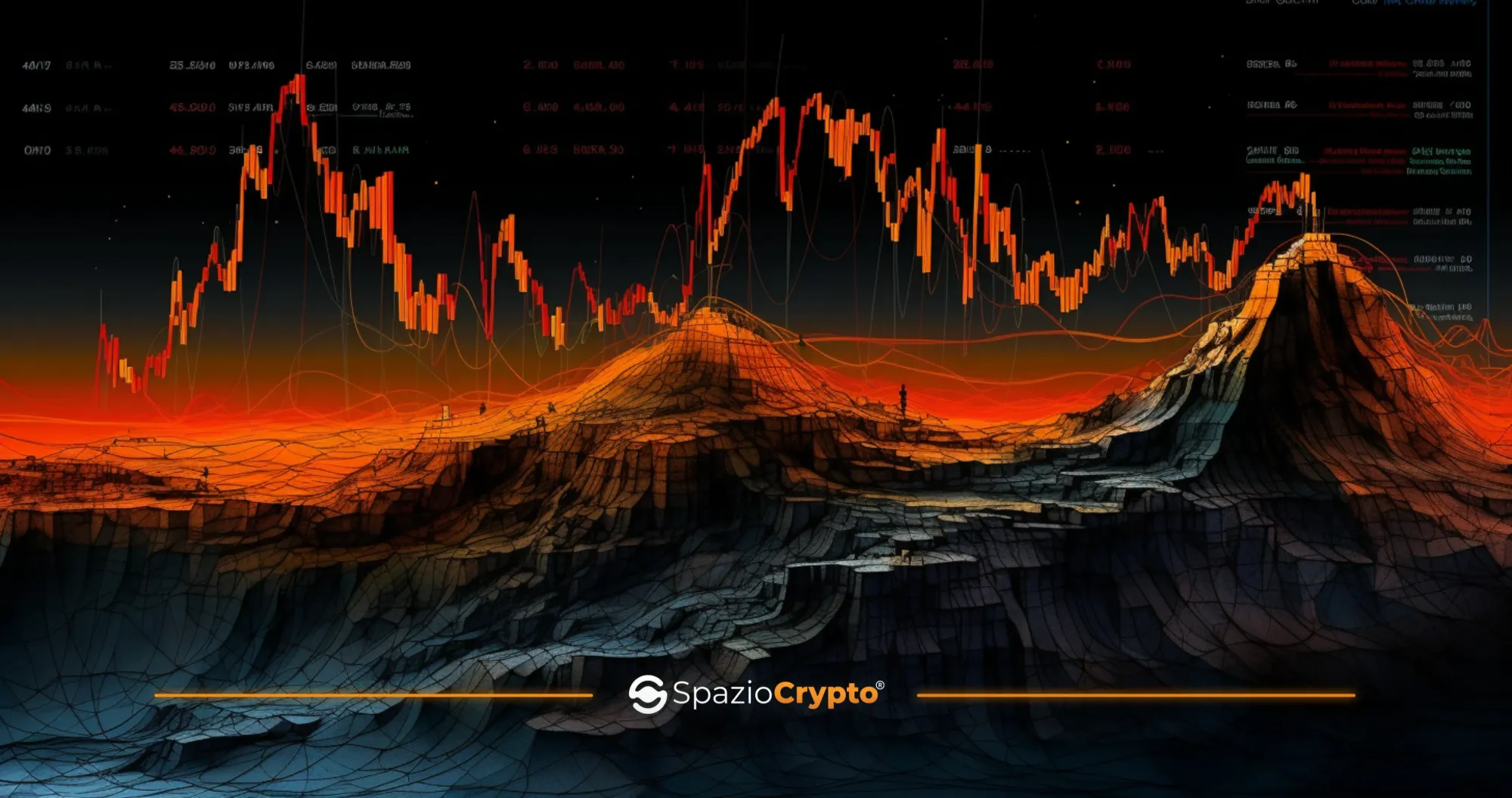
Bitcoin has Lost its Growth since Early 2025. What Happened in the Cryptocurrency Market?
The price of the first cryptocurrency updated its lowest since the end of December, falling below $93,000.

The price of the first cryptocurrency updated its lowest since the end of December, falling below $93,000.

Get the latest news, learn from experts, discover new tools, and find inspiration right in your inbox.
No spam. Unsubscribe anytime.
A powerful documentary on how Bitcoin and blockchain are reshaping money, power, and geopolitics—from El Salvador’s Bitcoin experiment and Europe’s regulatory revolution to the rise of decentralized finance and the new global financial order.
The price of the first cryptocurrency updated its lowest since the end of December, falling below $93,000.
The Bitcoin (BTC) rate has lost the growth it has gained since the beginning of the year. In the last day, the price of the asset fell to $92.5 thousand at one point, which happened for the first time since 31 December 2024. In 24 hours, BTC fell by 2.5 per cent. As of 11 a.m., Bitcoin is trading at around $93.4 thousand.
In the first 9 days of 2025, the price of the first cryptocurrency rose to $102.5k in the wake of Congress' approval of the US election results on 6 January, before falling below $100k after the release of macroeconomic data in the US. Despite the positive sentiment among market participants related to the approaching inauguration of Donald Trump, analysts note that investor concerns about the continuation of inflation and interest rates in the US remain high.
Bitcoin's market share is 57.86 per cent, according to TradingView as of 9 January. The currency's capitalisation is $1.86 trillion. Bitcoin has lost 3% in value over the month.
The total market capitalisation of cryptocurrencies has fallen 2.8% in the past 24 hours to $3.4 trillion. The trading volume of digital currencies reached $188 billion.
In the past 24 hours, the top 10 cryptocurrencies by capitalisation showed a decline, with the exception of Ripple's XRP (XRP), which rose 1.5 per cent. XRP showed steady growth thanks to the dinner between Ripple CEO Brad Garlinghouse, Chief Legal Officer Stuart Alderotti, and Trump. In addition, Ripple's president Monica Long said in an interview with Bloomberg that an exchange-traded fund (ETF) on XRP could soon be launched.
Cardano (ADA) and Dogecoin (DOGE) posted the biggest losses among the top 10 cryptocurrencies. They lost 5.8% and 3.3% respectively.
Of the top 100 cryptocurrencies, the anonymous cryptocurrency Monero (XMR) has seen the most growth, rising 4.1 per cent in one day. The AI project token ai16z (AI16Z), on the other hand, suffered the most significant decline, at 21%.
In the context of cryptocurrency's one-day decline, exchange platforms liquidated the positions of 163 thousand traders with a total value of $475 million. The cryptocurrency market's fear and greed index dropped from the 'extreme greed' range to the 'greed' zone. The indicator is now at 69 points out of 100. The decrease in the index signals that market participants have become more cautious about investing in risky assets.
What Influenced this Downturn
Several factors contributed to this downturn, including:
Regulatory Repercussions
Governments around the world have intensified their control over cryptocurrencies, introducing stricter regulations and enforcement measures. Major economies, such as the United States and the European Union, have introduced new tax compliance requirements and anti-money laundering (AML) policies, affecting investor confidence.
Market Saturation
The cryptocurrency market has seen an influx of alternative cryptocurrencies and decentralised finance projects (DeFi). This diversification has diverted attention away from Bitcoin, leading to a reduction in trading volumes and a shift in investors' focus towards more innovative or higher-yielding assets.
Macroeconomic Factors
Global economic uncertainty, high inflation rates and rising interest rates have also played a role. Traditional financial instruments have begun to regain appeal, driving institutional investors back into bonds and equities, further weakening Bitcoin's momentum.
Technological Challenges
Bitcoin's scalability issues and high transaction fees remain a significant concern. While other blockchain networks, such as Ethereum and Solana, have made great strides in upgrading their infrastructure, Bitcoin has lagged behind, limiting its adaptability in the face of evolving market demands.
Market Sentiment and Speculation
Retail investors' bearish sentiment, fuelled by high-profile cryptocurrency company bankruptcies and lingering scepticism after the 2022-2023 crashes, has contributed to the decline in demand. Speculation has shifted to other assets perceived as more promising or stable.
Read Next
YouTube integrates PayPal's PYUSD to pay US creators
YouTube introduces PayPal's PYUSD as an optional payment method for eligible creators in the US, opening up stablecoins in mainstream monetisation streams.
Light Penalty for the 40 Billion Collapse: Why Do Kwon took Less than SBF
The US federal judiciary has issued conflicting sentences in the most egregious crypto cases. Prosecutorial conduct has weighed more heavily than economic loss in the disparity of punishment between Do Kwon and SBF.
LUNA soars 55% pending Do Kwon ruling
LUNA is up 55% in 24 hours thanks to the network upgrade and the wait for the Do Kwon ruling, while the market remains divided over the rally.
MicroStrategy buys 10,600 BTC: Why doesn't the price go up?
MicroStrategy buys more than 10,600 BTC without moving the market: this is why a one billion deal has no immediate impact on the price of Bitcoin.